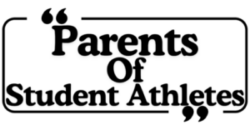Written by Pat Brown, MBA, Former Student-Athlete
As a former student-athlete, I know the balance of focusing on your sport while also preparing for life after graduation. One of the most valuable ways your student-athlete can get ahead in their career is by attending university job fairs and networking events. These opportunities offer them a chance to connect with employers, practice professional skills, and start building their careers. Here’s why these events matter and how you, as a parent, can encourage your student-athlete to take full advantage of them.
1. Exposure to Employers
Job fairs and networking events are excellent opportunities for your student-athlete to meet recruiters and employers from various industries. These events allow them to explore job roles, internship opportunities, and industries they may not have considered before. It’s a great way for them to get exposure to potential employers while still in school.
2. Building Confidence
As a former student-athlete, I understand how stepping outside your comfort zone can be intimidating. Job fairs provide a supportive environment for your student-athlete to practice engaging with recruiters, giving their elevator pitch, and discussing their skills and goals. Each interaction builds their confidence and helps them feel more comfortable navigating professional settings.
3. Making Connections
Networking is crucial in today’s job market, and job fairs give your student-athlete the chance to make valuable connections. They’ll have the opportunity to meet employers, alumni, and other students who can offer career advice, mentorship, or even job referrals. These connections could become key to their future career growth.
4. Improving Resume & Interview Skills
Many job fairs also feature resume workshops and mock interview sessions, where your student-athlete can refine their resume and practice answering common interview questions. By attending these events, they can improve their job search materials and gain the interview experience that will set them apart from other candidates when the time comes.
5. Early Career Exploration
Even if your student-athlete isn’t actively looking for a job yet, attending job fairs is a great way to explore different career options. They can learn about various industries, find out what kinds of roles align with their skills, and get a better sense of what they want to pursue after graduation.
6. Increased Hiring Opportunities
Studies show that students who participate in job fairs and networking events are more likely to land internships or full-time positions. Many employers attending these events specifically look to hire students, giving your child a great advantage when the time comes to seek employment.
7. Learning Persistence
Rejection is part of any career journey, and attending job fairs teaches persistence. Even if they don’t secure a job offer immediately, each interaction is an opportunity to learn and improve. Encouraging your student-athlete to keep attending these events helps them build resilience and a growth mindset that will serve them well in their professional life.
8. How You Can Help
- Reassure Them: If your student-athlete feels nervous, remind them that job fairs are a chance to practice and learn—not a test. The goal is to gather information and get experience, not to secure a job on the spot.
- Research Together: Help them research the companies attending the event, so they know which ones align with their career interests and goals. This will help them approach the fair with a plan.
- Encourage Preparation: Ensure they have an updated resume, a well-prepared elevator pitch, and professional attire ready for the event. Preparation goes a long way in making a strong first impression.
- Follow Up: After the event, encourage them to send thank-you emails or LinkedIn messages to the people they met. This is a great way to reinforce their interest and maintain connections.
As a parent, your support is invaluable in helping your student-athlete navigate this next phase of their career. By encouraging them to attend job fairs and networking events, you’re helping them develop essential skills that will serve them well, both on and off the field. These experiences will not only shape their professional future but also equip them with the tools they need to succeed in the competitive world beyond college sports.




